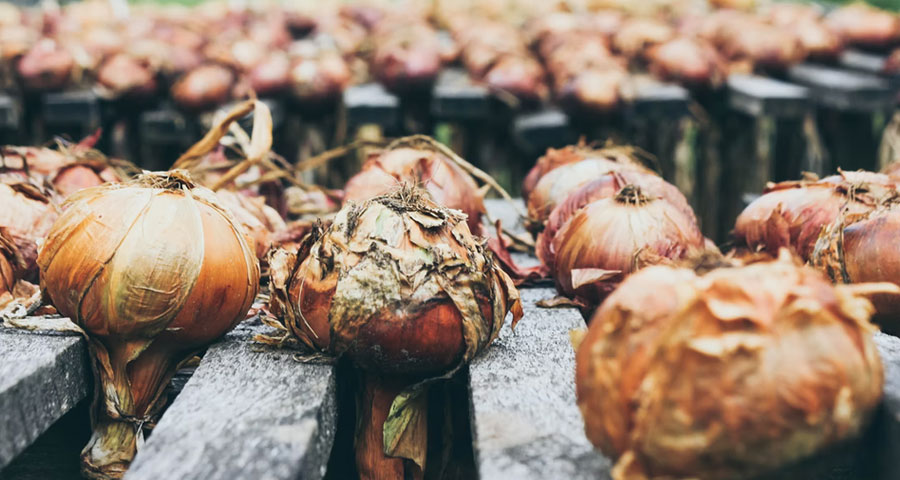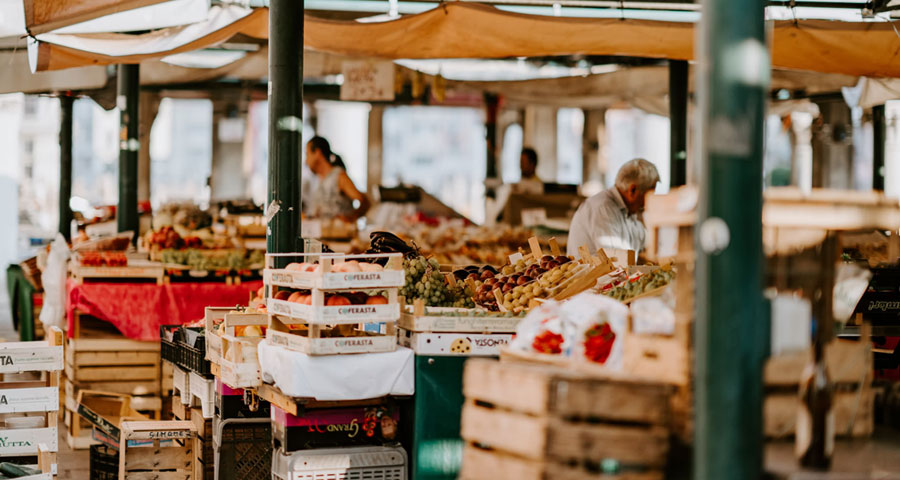Welcome to Food sovereignty now!!
These terms and conditions outline the rules and regulations for the use of foodsovereignty.org.uk’s foodsovereignty.org.uk, located at foodsovereignty.org.uk.
By accessing this foodsovereignty.org.uk we assume you accept these terms and conditions. Do not continue to use Food sovereignty now! if you do not agree to take all of the terms and conditions stated on this page.
The following terminology applies to these Terms and Conditions, Privacy Statement and Disclaimer Notice and all Agreements: “Client”, “You” and “Your” refers to you, the person log on this foodsovereignty.org.uk and compliant to the Company’s terms and conditions. “The Company”, “Ourselves”, “We”, “Our” and “Us”, refers to our Company. “Party”, “Parties”, or “Us”, refers to both the Client and ourselves. All terms refer to the offer, acceptance and consideration of payment necessary to undertake the process of our assistance to the Client in the most appropriate manner for the express purpose of meeting the Client’s needs in respect of provision of the Company’s stated services, in accordance with and subject to, prevailing law of . Any use of the above terminology or other words in the singular, plural, capitalization and/or he/she or they, are taken as interchangeable and therefore as referring to same.
Cookies
We employ the use of cookies. By accessing Food sovereignty now!, you agreed to use cookies in agreement with the foodsovereignty.org.uk’s Privacy Policy.
Most interactive foodsovereignty.org.uks use cookies to let us retrieve the user’s details for each visit. Cookies are used by our foodsovereignty.org.uk to enable the functionality of certain areas to make it easier for people visiting our foodsovereignty.org.uk. Some of our affiliate/advertising partners may also use cookies.
License
Unless otherwise stated, foodsovereignty.org.uk and/or its licensors own the intellectual property rights for all material on Food sovereignty now!. All intellectual property rights are reserved. You may access this from Food sovereignty now! for your own personal use subjected to restrictions set in these terms and conditions.
You must not:
- Republish material from Food sovereignty now!
- Sell, rent or sub-license material from Food sovereignty now!
- Reproduce, duplicate or copy material from Food sovereignty now!
- Redistribute content from Food sovereignty now!
This Agreement shall begin on the date hereof.
Parts of this foodsovereignty.org.uk offer an opportunity for users to post and exchange opinions and information in certain areas of the foodsovereignty.org.uk. foodsovereignty.org.uk does not filter, edit, publish or review Comments prior to their presence on the foodsovereignty.org.uk. Comments do not reflect the views and opinions of foodsovereignty.org.uk, its agents and/or affiliates. Comments reflect the views and opinions of the person who post their views and opinions. To the extent permitted by applicable laws, foodsovereignty.org.uk shall not be liable for the Comments or for any liability, damages or expenses caused and/or suffered as a result of any use of and/or posting of and/or appearance of the Comments on this foodsovereignty.org.uk.
foodsovereignty.org.uk reserves the right to monitor all Comments and to remove any Comments which can be considered inappropriate, offensive or causes breach of these Terms and Conditions.
You warrant and represent that:
- You are entitled to post the Comments on our foodsovereignty.org.uk and have all necessary licenses and consents to do so;
- The Comments do not invade any intellectual property right, including without limitation copyright, patent or trademark of any third party;
- The Comments do not contain any defamatory, libelous, offensive, indecent or otherwise unlawful material which is an invasion of privacy
- The Comments will not be used to solicit or promote business or custom or present commercial activities or unlawful activity.
You hereby grant foodsovereignty.org.uk a non-exclusive license to use, reproduce, edit and authorize others to use, reproduce and edit any of your Comments in any and all forms, formats or media.
Hyperlinking to our Content
The following organizations may link to our foodsovereignty.org.uk without prior written approval:
- Government agencies;
- Search engines;
- News organizations;
- Online directory distributors may link to our foodsovereignty.org.uk in the same manner as they hyperlink to the foodsovereignty.org.uks of other listed businesses; and
- System wide Accredited Businesses except soliciting non-profit organizations, charity shopping malls, and charity fundraising groups which may not hyperlink to our Web site.
These organizations may link to our home page, to publications or to other foodsovereignty.org.uk information so long as the link: (a) is not in any way deceptive; (b) does not falsely imply sponsorship, endorsement or approval of the linking party and its products and/or services; and (c) fits within the context of the linking party’s site.
We may consider and approve other link requests from the following types of organizations:
- commonly-known consumer and/or business information sources;
- dot.com community sites;
- associations or other groups representing charities;
- online directory distributors;
- internet portals;
- accounting, law and consulting firms; and
- educational institutions and trade associations.
We will approve link requests from these organizations if we decide that: (a) the link would not make us look unfavorably to ourselves or to our accredited businesses; (b) the organization does not have any negative records with us; (c) the benefit to us from the visibility of the hyperlink compensates the absence of foodsovereignty.org.uk; and (d) the link is in the context of general resource information.
These organizations may link to our home page so long as the link: (a) is not in any way deceptive; (b) does not falsely imply sponsorship, endorsement or approval of the linking party and its products or services; and (c) fits within the context of the linking party’s site.
If you are one of the organizations listed in paragraph 2 above and are interested in linking to our foodsovereignty.org.uk, you must inform us by sending an e-mail to foodsovereignty.org.uk. Please include your name, your organization name, contact information as well as the URL of your site, a list of any URLs from which you intend to link to our foodsovereignty.org.uk, and a list of the URLs on our site to which you would like to link. Wait 2-3 weeks for a response.
Approved organizations may hyperlink to our foodsovereignty.org.uk as follows:
- By use of our corporate name; or
- By use of the uniform resource locator being linked to; or
- By use of any other description of our foodsovereignty.org.uk being linked to that makes sense within the context and format of content on the linking party’s site.
No use of foodsovereignty.org.uk’s logo or other artwork will be allowed for linking absent a trademark license agreement.
iFrames
Without prior approval and written permission, you may not create frames around our Webpages that alter in any way the visual presentation or appearance of our foodsovereignty.org.uk.
Content Liability
We shall not be hold responsible for any content that appears on your foodsovereignty.org.uk. You agree to protect and defend us against all claims that is rising on your foodsovereignty.org.uk. No link(s) should appear on any foodsovereignty.org.uk that may be interpreted as libelous, obscene or criminal, or which infringes, otherwise violates, or advocates the infringement or other violation of, any third party rights.
Reservation of Rights
We reserve the right to request that you remove all links or any particular link to our foodsovereignty.org.uk. You approve to immediately remove all links to our foodsovereignty.org.uk upon request. We also reserve the right to amen these terms and conditions and it’s linking policy at any time. By continuously linking to our foodsovereignty.org.uk, you agree to be bound to and follow these linking terms and conditions.
Removal of links from our foodsovereignty.org.uk
If you find any link on our foodsovereignty.org.uk that is offensive for any reason, you are free to contact and inform us any moment. We will consider requests to remove links but we are not obligated to or so or to respond to you directly.
We do not ensure that the information on this foodsovereignty.org.uk is correct, we do not warrant its completeness or accuracy; nor do we promise to ensure that the foodsovereignty.org.uk remains available or that the material on the foodsovereignty.org.uk is kept up to date.
Disclaimer
To the maximum extent permitted by applicable law, we exclude all representations, warranties and conditions relating to our foodsovereignty.org.uk and the use of this foodsovereignty.org.uk. Nothing in this disclaimer will:
- limit or exclude our or your liability for death or personal injury;
- limit or exclude our or your liability for fraud or fraudulent misrepresentation;
- limit any of our or your liabilities in any way that is not permitted under applicable law; or
- exclude any of our or your liabilities that may not be excluded under applicable law.
The limitations and prohibitions of liability set in this Section and elsewhere in this disclaimer: (a) are subject to the preceding paragraph; and (b) govern all liabilities arising under the disclaimer, including liabilities arising in contract, in tort and for breach of statutory duty.
As long as the foodsovereignty.org.uk and the information and services on the foodsovereignty.org.uk are provided free of charge, we will not be liable for any loss or damage of any nature.
Learn More
Latest Posts

Many people are now engulfed in the world of online casinos. They can get plenty of bingo rooms at mFortune and win some real cash. However, the charm of traditional casinos, where you get dining experience and entertainment as well, is still absent in the online casino scene. Food is an important part of casinos as gamblers spend hours gambling, and they often stay overnight in the casino resorts. The food system is changing, and people are now more conscious about the way food is produced and supplied. Some casinos are going a step further and have casino farms for producing food. You will find it very nice to notice from your blackjack table that the crops are growing, and the bison are grazing. The food that is served is sourced from the crops that grow in the field nearby, for example. These casinos look modern, which includes sports bars, buffets, brightly coloured slot machines, cocktails, and more. But you will also notice a different kind of food system which includes classic farming practices. They have greenhouses to grow various plants and herbs. These are often used to prepare delicious dishes. Different varieties of vegetables and herbs are grown here to provide the best ingredients for preparing food for the casino goers. The meat of bison and cattle that are raised in the casino space is used for preparing food in casinos. Most of the food served in these casinos comes from the land where they grow crops and raise cattle. The food is sourced locally. Some casinos even have their own breweries. By doing this, the casinos are reclaiming food sovereignty and providing benefits to casino enthusiasts.

Food service is a part of the casino industry, and it’s changing now due to technology and other factors. Though food services are not needed in online casinos where people play for free online, the food system in traditional casinos is changing. Now the casino services have shifted from a fine-dining experience for the rich, to everyday diners. Here are some casino foodservice ideas. Changing dining areas Casinos now have turned into full-scale resorts. So, the gamers stay overnight, and the casino owners must cater to their needs. The buffet area is there, but meals are also brought to slot machines or the table rooms. In-dining experiences are also available. Carry and to-go services This is a new service adopted by many casinos. This provides a new revenue stream for the casino. People can now order food for takeout or drive-thru options. With these options, the casinos can cater to the masses. Online menus The casinos provide online menus so people can select what they want from home and then order. This saves time as you don’t have to stand in a queue anymore. Loyalty programs Loyalty programs are offered so that people come back for dining in the casinos. This boosts value for money and the guests will be happy to get the offer. Include entertainment Casinos include entertainment when the guests are having dinner. This gives the guests something extra and they find a reason to dine in casinos instead of other restaurants. So, integrating entertainment with the dining experience can bring great results. Improved food quality Casinos now source food from good sources to improve the quality of food they provide. They use local and seasonal ingredients often. Improving the food system can boost the overall casino revenue. The shift that is seen in casinos from buffets to other fast-track food service options will bring more profits for the casino companies.

The food systems today supply a large volume of goods to the market. However, the food system is resource-intensive, and it affects the land due to deforestation, biodiversity loss, scarcity of water, greenhouse emissions, and soil depletion. These have serious consequences on the environment, and we are now facing very critical climate change and other challenges. The inequalities remain in this system for which we are wasting a lot of food, and people in many parts of the world remain hungry. Agroecology can bring a change in response to the instability in climate. It can meet the increasing demand for food. It applies ecological and social concepts to design food systems. It makes the interaction between plants, humans, animals, and the environment better. Agroecology uses a bottom-up approach to solve local food problems. It uses the traditional and local knowledge of the producers. It gives autonomy and empowers the farmers. It addresses the root causes of the food system. It focuses on the youth and indigenous people and women’s rights. Global food production is now threatening food sovereignty. Food production is being threatened, and our health is deteriorating. The system uses energy-intensive inputs, which are costly. Many companies understand the need to protect the environment and people’s health by transforming the food system, and agroecology seems to be the solution. The conventional farming model depends on chemical and mechanical technologies for more food production. This model disregarded many aspects of good farming, which led to ecosystem imbalance. Consequently, it has affected our health, society, and environment. On the other hand, agroecology talks about the interrelatedness of the agroecosystem components to bring stability to the system. It stresses the need for the application of ecological concepts to the design of sustainable farmland ecosystems. If we can understand the ecological relationships and processes like symbiosis, diversity, nutrient cycling, prey interactions, and other things, then food production can be improved and produced sustainably. There won’t be any negative effect on the environment as well. Agroecology doesn’t focus on producing more food; instead, it focuses on eco-efficiency, which means increasing the yields per input. Agroecology addresses the need to reduce waste and distribute nutritious food. Agroecology has become a known concept since the 1980s, and various farmer groups, research centres, organisations, and NGOs are realising its importance. This can improve the food system and alleviate poverty. In the UK, a new agroecology bill has been passed, which ensures that a huge amount of public goods be delivered. It focuses on the healthy production of local food, reducing the effect of climate change, and restoring the environment. In the future, many companies will adopt this practice and move towards producing nutritious food. They won’t focus on the quantity of food but on the quality.

Our current food system is not equitable. We waste almost a third of the food that we produce, whereas there are people out there who don’t get any food. We use natural resources in a way that degrades the land and causes climate change. Quantity is valued over quality. This system needs to be fairer so that it benefits people and the environment. Here are some ways to transform the food system. Use the regenerative power of the earth Our environment is degrading due to the way we produce food. There is climate change and loss of biodiversity. If we go for regenerative agriculture, then we will have healthy soil which will produce nutrient-rich food. This is beneficial for people’s health. At the same time, the land improves, which helps the farmers with food production. Develop a strong local food system A strong local food system should be developed. Then it will keep the natural resources, nutrients and minerals circulated. This will give a better environmental solution, lower the frequency of imports, and create jobs for local people. You can treat the wastewater to get the minerals like phosphates. You can transform the food waste into valuable nutrients by returning it to the soil instead of dumping them. The organic waste can be used for bioenergy which in turn can be used to power agribusinesses and homes. Give voice to the farmers Instead of controlling the entire system, it is important to give voice to the farmers. The farmers must be empowered so that they can support more populations. They will lead the global regenerative revolution, so they must be included in the policy discussions. The shift from low cost to the actual cost Though the food is cheap, it doesn’t consider the other factors like health bills that incur due to eating unhealthy food and the cost of biodiversity loss and land degradation. Instead of making food cheap by using chemicals and unhealthy ingredients, the true cost of food must be determined. The farmers are also paid low, which makes the overall cost of food cheap. The farmers’ wages must be increased, and they must be encouraged to use organic ways of producing food. This may increase the cost of the food initially, but over the years, you will save a lot as your medical bills will go down, and the environment won’t be affected. Therefore, regenerative agriculture, giving voice to farmers, finding the true cost of food, and building a strong local system can transform our food system to provide benefits to people and the environment.

Have you ever thought about the long journey your food makes to come into your plates? The journey is affected by climate, privatisation, political forces, and other things. Here you will learn about food sovereignty and how the global food system today is fighting inequalities. The term ‘food sovereignty’ was first voiced by the La Via Campesina organisation at the 1996 World Food Summit. Through this, they brought together the small and medium-sized farmers, rural women, youth, landless people, migrants, indigenous people, and others. It is part of the free trade regime, which allowed trading between nations with fewer tariff barriers for imports and exports. According to this organisation, ‘food sovereignty is the people’s right to have healthy food produced through sustainable methods. It also gives them the right to define their food and agriculture system. Food sovereignty provides people with the scope to control their food which reflects their culture. It gives great value to the food providers, which includes small-scale farmers, artisanal fishers, indigenous people, and others. This concept doesn’t support the privatisation of natural resources. It makes better use of our ecosystems. Nowadays, big companies and political forces control the food production stages. The privatisation and centralisation of food production are causing damage to the small and medium-sized farmers and others. It’s taking away the fundamental rights of people. Things like overfishing, mass food production, and industrialised agriculture contribute to global food insecurity. Food production can drive climate change. It is responsible for one-quarter of the greenhouse gas emissions in the world every year. This takes place through deforestation, processing, transportation, and waste. The industrialised food system relies on fertilisers and pesticides that are harmful to the environment and human health as well. This type of food system also results in racism as the indigenous, black, and other people are pushed aside by the giant players in the market. The indigenous people still practise the traditional ways of food production, and they are often left out due to their insufficient knowledge about modern agriculture and food production. Modern agriculture uses fertilisers and pesticides, which are harmful to health and also takes away the important nutrients from the crops. So, people now realise the importance of agroecology. Now many companies support the food sovereignty movement beside La Via Campesina, which includes GRAIN. We should shop more at the farmer’s markets and buy organic food that is fertiliser and pesticide-free. We should provide donations to companies that are supporting the sovereign food movement. With this movement, it will be possible to strengthen the local market and foreign trade relations. Fair prices for food and decent wages can be established. So, we should all join this movement to ensure fair play in this business and also produce sustainable food.
Calendar
July 2024 M T W T F S S 1 2 3 4 5 6 7 8 9 10 11 12 13 14 15 16 17 18 19 20 21 22 23 24 25 26 27 28 29 30 31 Categories
Archives


